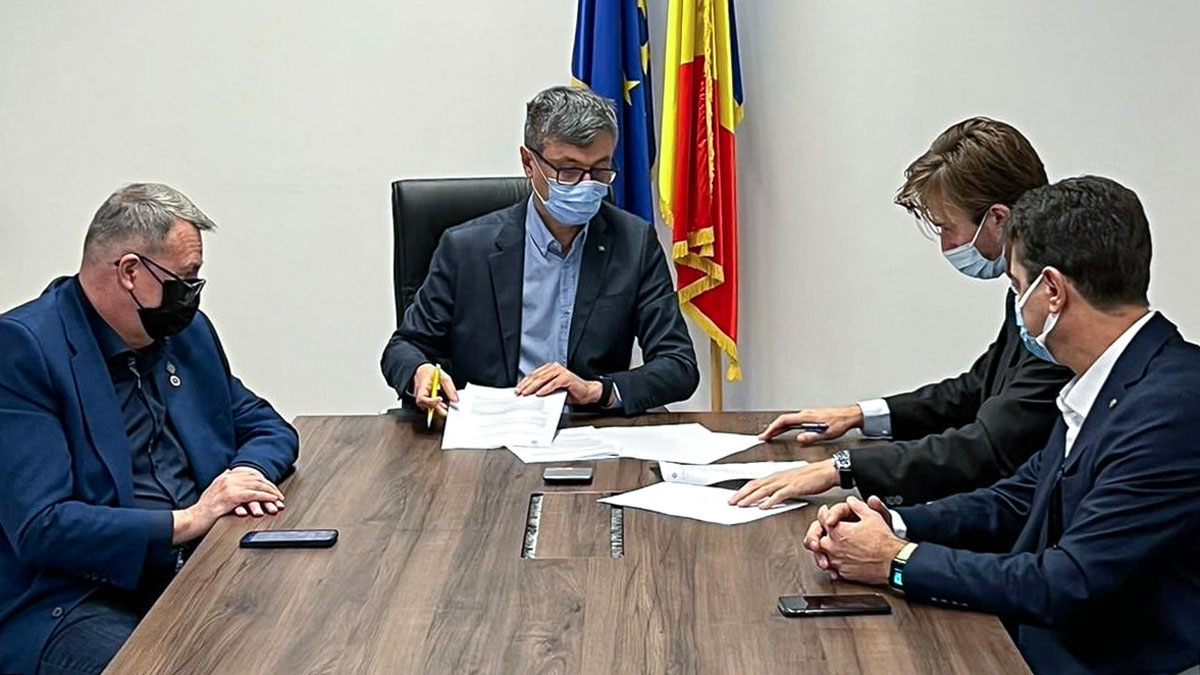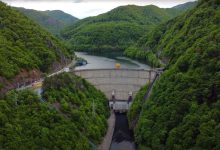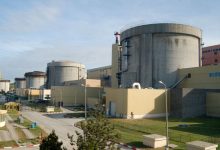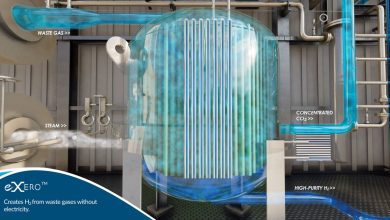Decarbonization of Jiu Valley: CET Paroseni to Replace Coal with Pellets Produced by Arbaflame
Romanian Energy Minister Virgil Popescu and Arbaflame CEO Bjørn H. Knappskog signed a letter of intent to transform the activity of CET Paroseni into one sustainable in terms of CO2 emissions, in line with the objectives assumed by the Romanian Government to reach the energy transition targets.
Therefore, collaboration with Arbaflame, the Norwegian company, will involve the replacement of coal on which the Paroseni thermal power plant operates with the pellets produced by Arbaflame and, in the long term, it also includes the construction of a factory for the production of these pellets in Romania. These factories will use sustainable biomass resources, which will contribute to the reduction by more than 90% in CO2 emissions.
Virgil Popescu highlighted the importance of this agreement, which is basically the beginning of decarbonization of Jiu Valley.
“I promised, I delivered! Today I signed a historical agreement for the Romanian Energy System and for Jiu Valley. This partnership involves a massive decarbonization, because we will replace the hard coal burned at CET Paroseni with pellet produced in a sustainable way, with a low rate of CO2 emissions. It is a first step that we have taken for the Jiu Valley and there is still a lot to be done. I claimed that Romania must reach ambitious targets of reduction of greenhouse gas emissions, and we will reach them. Moreover, not only do we ensure heat and electricity in a sustainable way, but we also bring a breath of fresh air from an economic point of view for Jiu Valley, as the factory where these pellets will be produced will also be built in Paroseni. The surplus will be exported, so Romania will have a double benefit. I know that the inhabitants of Jiu Valley suffered a lot, I know that the energy transition may frighten many of them, but I would like to assure them that we will not abandon them, that we will find the best solutions for the local economy, for the Romanian ecosystem and for the National Energy System. Tests will begin in the first part of 2022, which makes us be very close to the moment when the decarbonization of Jiu Valley begins,” said the Energy Minister.
In his turn, Arbaflame CEO Bjørn H. Knappskog stated: “We are very excited to confirm, together with Energy Minister Virgil Popescu, our common intention to transform the CHPs in Romania, to use clean energy.”
The meeting was also attended by Mihai Dogariu, country manager of Arbaflame, and PNL Senator Eugen Tapu Nazare.
Arbacore pellets share many of the properties of coal
Arbaflame is a Norwegian company that has developed a patented technology for pellets that share the properties of coal, but which burn with a significantly reduced amount of greenhouse gas emissions. Key for the low investments and fast conversion time is that Arbaflame’s black pellets, Arbacore, share many of the properties of coal.
Basically, Arbacore, the name of the pellets, can be transported, stored, and handled in the same way as coal. Moreover, the same equipment, including that for spraying and burning fuel, can still be used. The energy density of Arbacore pellets corresponds to 76% of the energy value of coal, while white pellets have almost half of the energy value of coal. ARBAHEAT project aims to develop and prove a new concept for the cost-effective modernization of power plants that currently operate based on fossil fuels, through the unique integration of a biomass heat treatment technology.
The ARBAHEAT project
The ARBAHEAT project aims to develop and demonstrate a new concept for the cost-effective retrofitting of existing fossil-fuel driven power plants via the first-of-a-kind integration of a biomass thermal treatment technology and application of on-site and off-site heat utilisation in an existing ultra-supercritical coal-fired power plant, and to validate operational strategies that prove a feasible and affordable solution for the future energy system.
Case study: World’s first conversion
Ontario Power Generation (OPG) is an electricity company with a generating capacity of over 16 GW, supplying over half of Ontario’s power needs. In 2015, Arbaflame converted their Thunder Bay Generating Station. Within months, the power station went from relying solely on coal to a 100 percent renewable solution, sending a significant message to power production companies worldwide.
Apart from its energy value, Arbacore has several advantages over traditional white pellets. For example, its water resistance is a major benefit for the storage of the fuel – you can manage the entire supply chain in exactly the same way as for coal. Furthermore, the risk of explosion or spontaneous combustion is virtually non-existent, which is otherwise a major problem with white pellets, for which you must protect the power plant against a clearly enhanced fire risk.
From fossil fuel to renewable in four months
The Thunder Bay Generating Station was converted with only two months down-time to a facility running on Arbacore wood pellets and it maintained power generation capacity at 170 megawatts, the same as when it was being fired with coal. And the price tag stayed at the 5 million Canadian dollars mark, 165 million dollars less than for the white pellets’ facility at the Atitokan Generating Station. In addition, the significantly shorter conversion time meant that the facility could be in operation more than half a year faster than its sister plant, saving even more.
At the beginning of 2014, Ontario Power Generation had two coal-fired power plants. Atitokan Generating Station, with a capacity of 205 MW, was converted to use traditional white pellets as fuel. The project took eighteen months and cost 170 million Canadian dollars to complete. The other coal-fired power plant, Thunder Bay Generating Station, was only used to manage peaks in the energy supply, so they did not want to make an equally large investment. The options were either to close the station fully or to find a cheaper way to carry out a conversion to renewable fuel. Henrik Hassel, Business Development Director at Arbaflame, tells us how Arbacore became the solution for the Thunder Bay Generating Station.
When Arbaflame first came in contact with OPG they had already initiated the conversion of the Atitokan Generating Station to use white pellets and had started discussing alternative options for the Thunder Bay Generating Station. A close dialogue with OPG verified that it is possible to make minor modifications in a very short period and switch to fully renewable power generation.
The decisive step toward a fossil fuel-free production at the facility was taken in November 2013. Ontario’s government decided to close all coal-fired power stations and replace them with healthier and environmentally-sound alternatives. Among the key factors on which the decision was based were studies which show that coal is twice as costly as renewable energy production when considering the extensive health problems that arise from use of coal.
With the world’s first commercial conversion to Arbacore pellets in full operation has demonstrated to potential customers and other stakeholders that Arbaflame is no longer a development project. Arbaflame continues to push forward for more commercial possibilities, particularly in Europe, Canada and Japan.







